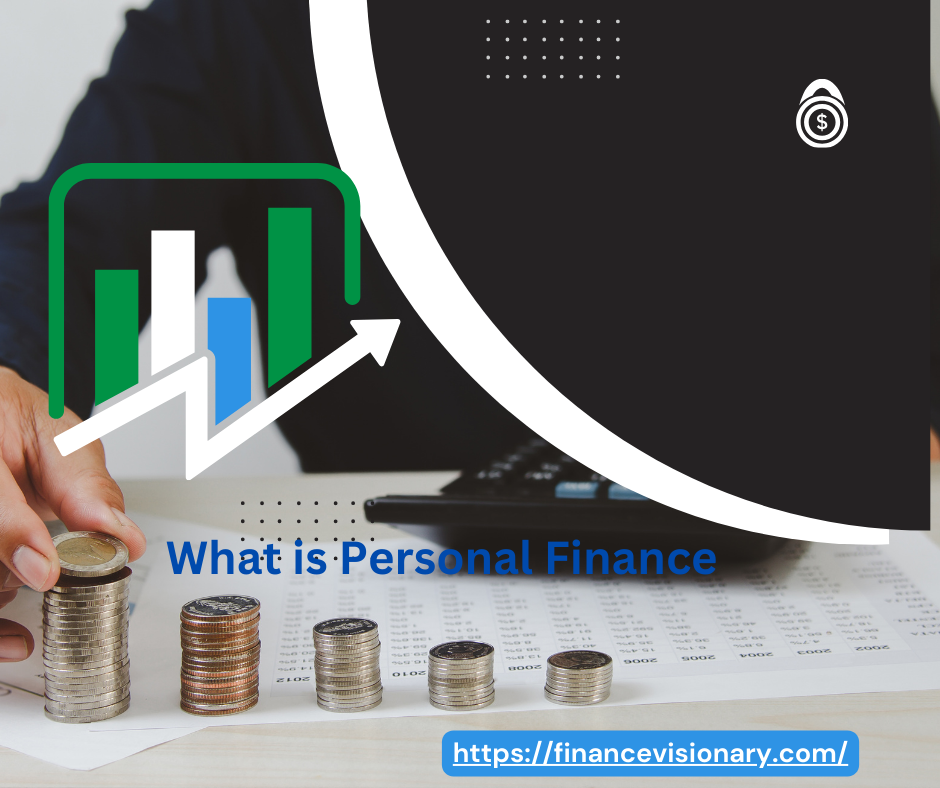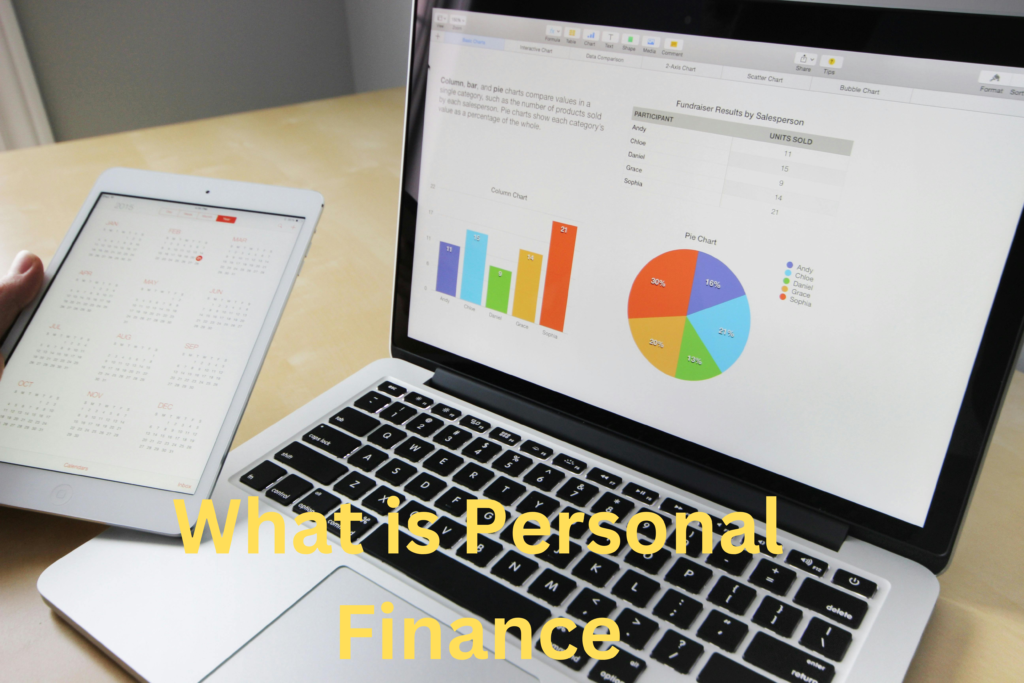What is Personal Finance?2024
What is Personal Finance Learn about What is Personal Finance. Discover the essentials of personal finance, including budgeting, saving, investing, and managing debt, to achieve financial security.Personal finance is a term that means managing your money which involves budgeting, saving, investing, and planning for the future by planning for future cash flows and budgets as well as understanding oneself and sources of income level, comparing these achievements with the set goals.
Some of the key features to consider include managing debt, planning for retirement, and creating an emergency fund. Effective personal finance helps individuals succeed in life, protect themselves against uncertainty, and achieve their dreams while making educated choices according to their personal needs and circumstances that bring about calmness in their lives.

What is Personal Finance?
Personal Finance refers to the long-term planning and strategic positioning of an individual’s financial resources. These include saving, budgeting, and investing in future financial needs.” “It is concerned with making sensible decisions that result in worth for purposes of reaching short and long-term objectives.
The management of personal finances involves regular activities such as managing earnings; spending control; and planning toward big life events like owning a house, financing education, and planning retirement, among others. In addition, it entails comprehending the various financial products and services including borrowing money, loan repayment, financial security, and insurance policies among others that are intended for wealth creation and protection.
In simpler terms, personal finance involves gaining stability and self-reliance in financial terms through being conscious and knowledgeable about finances.
Areas of Personal Finance
Personal financial areas have a broad scope of essential features that interconnect with one’s financial well-being. Such constituents lay the foundation for people’s economic safety and success.
- Income: Revenue is essentially the primary stone, the vital fluid that supports and endorses financial activities; for it is not just a paycheck or income channel-it is the realization of someone’s own toil and skill denoting possibility.
- Spending: Spending is an important decision to be made, money is channeled towards key requirements, wants, and obligations. It represents the shared ground between making reasonable choices and seeking comforts or dreams in life.
- Savings: Solvency represents the act of saving for a rainy day and exhibiting the appropriate levels of monetary planning. It goes hand in hand with planning to provide for any eventuality and laying a foundation for objectives to be realized over a long period.
- Investing: Investing includes thinking ahead and focusing on growth whereby we allocate money planning to make more money & become richer. It is the chase of opportunities, managing to take some risks, and becoming financially independent.
- Protection: The essence of protection is to protect one’s financial basis and future dreams within their life. It involves a wide range of actions – from suitable insurance to proper risk management techniques – that help reduce risks and guarantee persistence in case something goes wrong.

Important Personal Finance Terms
1. Budgeting
Budgeting is the basic foundation of managing your finances. It is the process of creating a financial plan that ensures you allocate your income to various expenses, and savings and every dollar has a purpose carefully.
Budgeting essentially involves matching what you earn against what you spend which encourages healthy financial management. A budget will put in place will help you plan for financial uncertainties, distinguish important expenses from the rest, and follow a definite financial goal. It is not just a list of figures, the financial strategy that steers other decisions you make regarding money and brings order into your monetary resources.
2. Insurance
Insurance plays an important role in personal finance by acting as a safeguard against uncertainties that may come along the way. It is a contract in which one gets paid for some money by insurance from a company when they have lost something.
An insurer is engaged in exchange for regular payments for the protection of people against heavy financial losses that people could face anytime because of accidents such as sickness or natural disasters.
There are different types of insurance i.e. health, life, auto, or property insurance, all of which are designed to protect various parts of our lives. Apart from paying premiums and signing documents, insurance companies give us comfort in knowing that financially we will be safe with our families in case any misfortune happens.
3. Savings
It is the amount of money you save from your income on purpose for upcoming needs instead of using it immediately. Savings are created in several ways. For instance, they may be in plain old savings accounts or more complex financial products such as CDs or money market accounts just to name two examples.
A disciplined practice of saving prepares one for unforeseen financial needs, whether they may be anticipating education funding, purchasing a house through a deposit, or saving up for any emergencies.
Save habitually and you shall guarantee yourself against eventualities while fulfilling long-term monetary dreams. This is because saving is simply the postponing of consumption, which says much about being cautious and thinking ahead as regards one’s finances.
Personal Finance Education
1. Online Blogs
In the vibrant virtual communities that are online blogs, experts and enthusiasts share insights, strategies, and real-world experiences; in addition to interactive hubs that serve as places where a lot of articles, guides, and personal anecdotes are found demystifying complex financial concepts while giving practical ways of managing money well.
2. At the Library
The library is located where financial education and literary lovers can share their ideas and information. In the store, you will discover meticulously selected books: some are all-time classics; others provide the latest financial insights.
As one pours through these books, they find more depth in areas like budgeting, investment strategies, retirement plans, and other issues—and they also take in the voices of well-known writers as well as money gurus.
3. Free Online Classes
Online education is an accessible gateway to structured learning for learners of all backgrounds and varying levels of experience making Free Online Classes accommodate all learners.
These courses, usually offered by colleges, banks, or social service institutions, generally include a wide range of areas starting from basic financial principles to sophisticated investment strategies which promote a full comprehension of the fundamentals of personal finance.
4. Podcasts
The charm of podcasts results from their mixing of stories that establish connections with the listeners and professionalism as far as skill knowledge is concerned. Simple conversations, interactive sessions with well-known professionals, and application approaches on debts, investments, or personal money ownership usually characterize finance podcasts.
They offer listeners a way to easily take in information while going, instead of changing simple trips made each day or household tasks to have value in them grow.

FAQs
Where can I find reliable personal finance information?
From sources that you can trust like established financial institutions, government agencies maintaining websites or financial advisers, reputable books authored by popular writers, or educational portals that provide courses about managing personal money you could get informed.
What are common mistakes to avoid in personal finance?
Common problems include spending more money than necessary, saving too little, debt management being ignored, investing without first researching, and lacking enough insurance.
How does personal finance differ across different stages of life?
The needs of personal finance shift from young adulthood (where the focus is on education and career development) to midlife (which is the time when one starts planning for major expenses such as buying a house or raising children) until you retire (at which point you have to manage your savings and investments so that they can provide you with income).
Why is personal finance important?
It is very important to achieve your goals, be financially stable during hard times, retirement plan, and become wealthy over some time.
What are the key components of personal finance?
Some of the main things are budgeting, managing your debt, saving for goals (such as home and education), investing well, and guarding against financial risk.
Conclusion
Personal finance is essentially the act of managing your own money in a way that you get a lot out of it in terms of income, outflow, and storage, in addition to investing; and you also ensure its security. It involves conscious decisions regarding present-day requirements envisioned against prospects thus establishing financial comfort and protection.
Confident in negotiating life’s financial complications, individuals can rest easy knowing that they are ready for both emergencies and chances. Personal finance is more than the money one has in bank accounts or investments; an individual primarily can manage his/her resources to get desired future outcomes.

